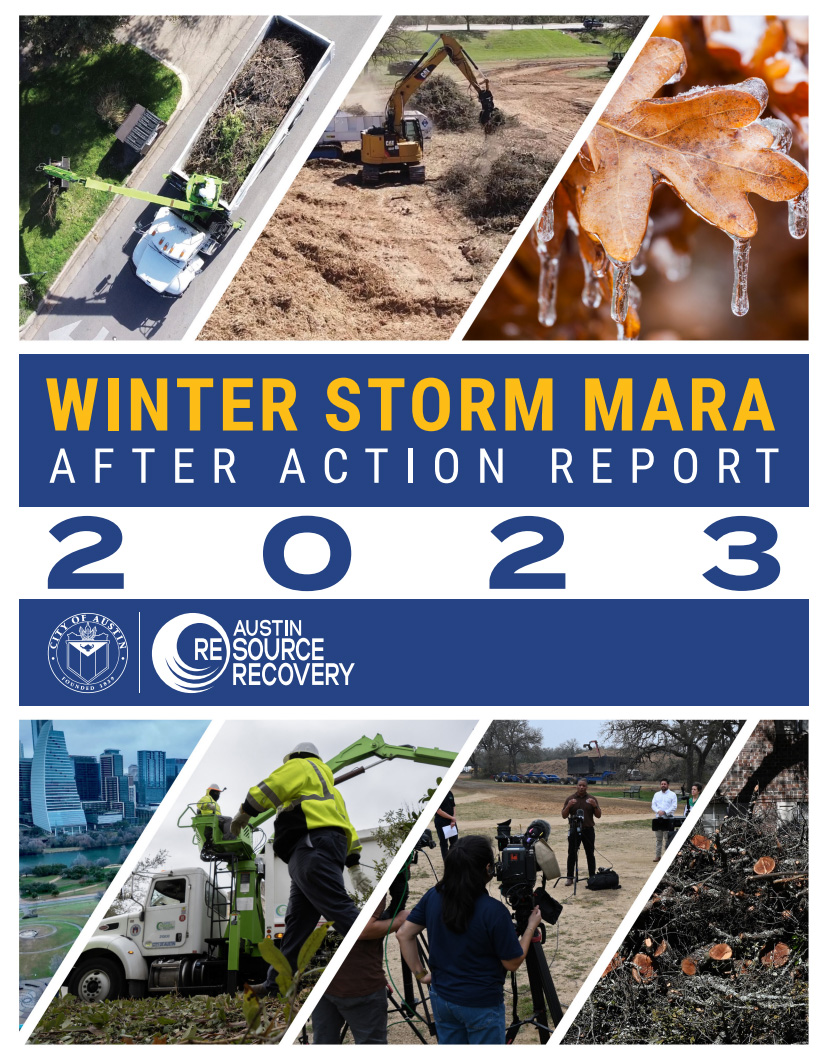 Climate Change Denial in Government and Media in Central Texas
Climate Change Denial in Government and Media in Central Texas
Record-breaking ice accumulation struck Austin on January 31-February 2, 2023 leading to the worst ice disaster Austin has ever seen.
One would think that this obviously climate change-caused event would warrant acknowledgement of climate change in any reporting, much less an after-action report this report the City of Austin has prepared. However, nary a mention of climate change was identified in this report. Many action items were identified to mitigate for the extreme and never before seen effects, and this is common with unprecedented emergency event reports such as this, but the cause of the ice storm was not mentioned.
Why is this important? Imagine that there was an automobile crash that killed several people because of a manufacturers-caused brake failure, or a traffic signal that was green in both directions, or a train crossing barricade that malfunctioned. The law and insurance evaluation of the incident would not just acknowledge the crash and deaths; in-depth investigation would identify the brake or signal failure or barricade malfunction because these things must be known in order to appropriately address the disaster.
With climate change disasters that kill far more than a few people, why are these standards not followed? Winter storm Uri in Texas in 2021 — the one that almost exploded the Texas electrical grid with a blackout to 20 m9illion people that lasted on average four entire days, Uri had an excess deaths evaluation that showed up to 978 people were killed in Texas by this storm in just the seven days of the disaster, not the 246 “official” deaths cited by official State of Texas statistics. Considering almost every single climate change related impact we are experiencing is understated by very significant amounts, even this excess deaths analysis is plausibly not accurate. But climate change denial, both active and passive, continues to be widespread.
This San Antonio Express News article, “ERCOT says Texas ‘in a pattern’ for a deep freeze that could boost likelihood of winter grid outages” on ERCOT’s outage warning is another example. Though this article mentions that “You can have a warm winter in Texas and have a cold extreme, and that’s becoming more frequent,” this article too, did not mention climate change, the reason cold extremes are becoming more extreme, or anything related to climate change even once.
The bottom line is that our media organizations and governmental agencies are reticent to speak the words, “climate change.” They fear that they will offend science deniers, that they will lose viewership, or maybe the reason is that the persons responsible for the outreach are simply science deniers themselves.
So I ask once again, why is it important that climate change be identified in disaster reviews? The answer was given to me in my first years as an engineering student at Texas A&M University long before significant impacts from climate change became obvious. The answer is that, in the vast majority of instances, one cannot definitively solve a problem unless one knows what caused the problem.
Remaining silent on the cause of climate change related disasters defies not only our standard cultural procedures, but the silence actually endorses that the cause of these climate change related events has nothing to do with climate change.
Silence is a deadly killer.
